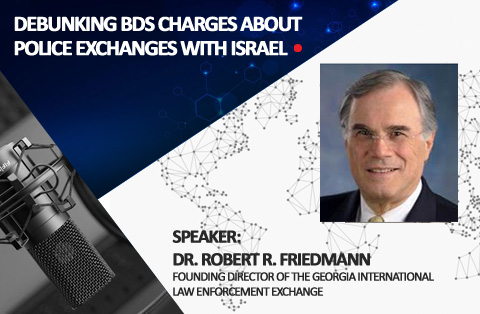Western civilization has a tendency to look at terrorism as if it’s a B-rated movie: watching explosions and shootings, but paying little attention to the reasons these acts occur. We do not have the patience, nor interest, to understand, follow or realize the ideology that generates such acts. Naturally, we worry about terrorism more when it happens in the homeland, yet even then, we distance ourselves with passing time when we do not clearly define the villain.
To better understand terrorism, we need to look at the movie frames that precede the explosion. With well over 100 definitions of terrorism, I use Ganor’s definition, where terrorism is the intentional use of, or threat to use, violence against civilians or against civilian targets to attain political aims.
What we are seeing is asymmetric warfare mostly against “soft targets” that are not in a combat mode. We can anticipate future attacks on such targets. And Atlanta is a tempting location due to its commercial, transportation, government, academic, health services and many other centers that attract a large number of people.
These attacks have a common thread: An ideology that utilizes terrorism as a tool. It is out there, readily available for anyone should they want to see it.
What stands behind most of these attacks — and it should be noted that the majority of victims to date have been Muslim — is a power struggle for global domination. It is a shift in the tectonic plates that make up our social, political and cultural order, a violent attempt to shake up old political arrangements and create new ones. Much of it can be traced to the Sykes-Picot agreement of 1916, which demarcated the spheres of influence between the British and French empires and created new entities such as Iraq, Jordan and Syria.
But more so, it is the western sphere of values, scientific and technological advances, coupled with energy dependency, that was seen as a threat by radical elements in the Arab world and gave rise to the Muslim Brotherhood of 1928, based on the premise that a common religious identity — not capitalism, communism or nationalism — should unify its members. The Brotherhood is the precursor of al-Qaida, which became the precursor of the Islamic State and its various offshoots, loosely tied together or in fierce competition. . These and similar groups thrive now more than ever before.
Terrorists try time and again, and suffice it for them to have one big pyrotechnical success out of 100 attempts, while the targets need to successfully thwart all 100 attempts. Yet what is even more difficult is the strategic effort — namely, coping with the pyromaniacs who create these explosions.
They do not start in a rented apartment or a garage, but in visible, overconfident incitement, blogs, advocacy, sermons, writings, and political and ideological support where violence is preached as a recruitment tool. Terrorists utilize an ideology that awards them “legitimate grievances” and allows them to turn their victims into perpetrators who “deserve their fate” simply because of who they are.
In a sense, the terrorists are in a win-win situation. Even when they fail an operation, they end up winning the long-term war.
Fighting terrorism on the tactical level alone is shortsighted and insufficient. The sad fact is that for every terrorist eliminated and every “senior leader” taken out, there are many who eagerly take their place.
Defeating terrorism requires a two-pronged, proactive effort that aggressively focuses on eliminating the tactical threat and fighting the ideology that dispatches the terrorists . Victory is not easy, but it is certainly an imperative. The Islamic State can be defeated, but a similar global ideology guides the worst state sponsor of terrorism — Iran. It will be a far greater challenge to defeat a nuclear Iran.
Robert R. Friedmann, is professor emeritus of criminal justice and is founding director of the Georgia International Law Enforcement Exchange at Georgia State University’s Andrew Young School of Policy Studies.



